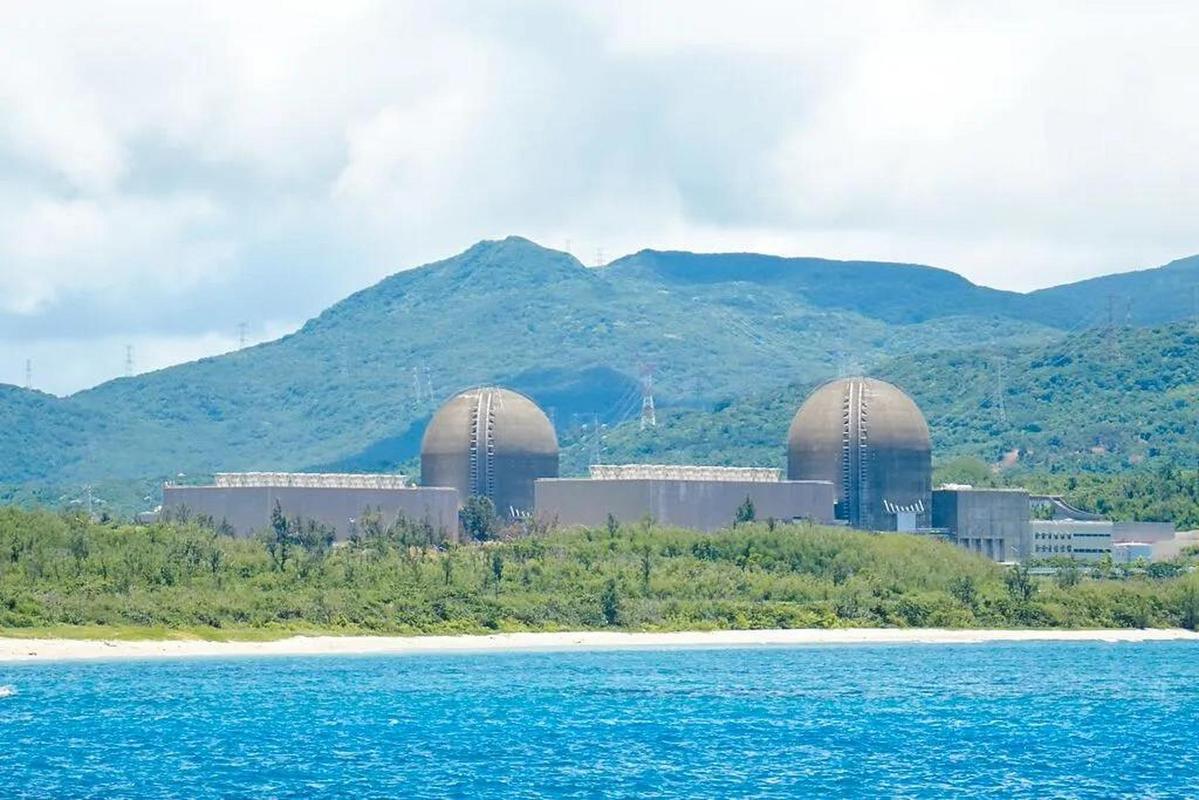
Unit 2 of Nuclear Power Plant No. 3, located in Hengchun Town, Pingdong County, Taiwan, was gradually lowered at 1:00 p.m. on the 17th. It entered a safe shutdown at around 12:00 p.m. , “Bringing Taiwan’s 47-year history of nuclear power generation to a close.” Into the so-called“Non-nuclear home.”. But is there enough power? The island is full of misgivings.
Taiwan’s nuclear unit 3-2 has been in commercial operation since May 18,1985, generating about 274.16 billion kwh during its 40-year operating license period. Yonhap News Network said that Nuclear Power III is just a power outage, with a 25-year decommissioning period remaining. When neighbors talk about this neighbor of 40 years, they will still hold more positive views about nuclear power III providing job opportunities, etc. , we also hope that the suspension of the third nuclear power plant will not affect people’s electricity consumption. Reported that on the 17th outside the gate of three nuclear plants as usual, vehicles in and out, no tourists to take photos. Residents surnamed Liao live across the street from Nuclear Power Plant No. 3. He said that for 40 years, Nuclear Power Plant III has contributed to Taiwan’s economic development and people’s livelihood, bringing employment opportunities and taking local development into account. He said the authorities promised to replace nuclear power with green power in the future, which is less polluting, but it is important to have enough. Dong said he had lived with Nuclear Power Plant No. 3 for 40 years and hoped that the future transformation of the photoelectric field would not affect the environment.
Island analysis said that Taiwan into the“Non-nuclear home”, the greatest impact on people’s livelihood is no doubt has been 4 consecutive rise in electricity prices. Green power is expected to spend as much as T $200bn next year, with a 2027 of T $240bn, according to the Ministry of Economy, “Together with the cost of more expensive natural gas to replace nuclear III, will force the price of electricity this year, three consecutive years of upward pressure.”.
Eric Chu, chairman of the Kuomintang (KMT) , said on the 18th that the Democratic Progressive Party (DPP) firmly opposes a 20-year extension of nuclear power to ensure a stable supply of cheap and clean electricity, later, it planned to mothball all nuclear power, “The DPP is a waste of people’s money.”. “Legislator” Huang Jianhao believes that there are three major contradictions in the government’s energy policy: one side is calling for net zero carbon emissions, while at the same time it continues to rely on coal-fired power generation; the other side is calling for“Resilience” and supporting the industry, instead, the DPP’s dream of a“Non-nuclear home” was achieved at the cost of high electricity prices for all.
Many island public opinion calls for the restart of nuclear power. Li Min, a retired professor at the Department of National Tsing Hua University Engineering and systems science, wrote on the 18th that Lai came to power with the goal of “30% green power, 20% coal power and 50% gas power” by 2030, it also said that 2026 renewable energy should account for 20% of the total, “The share of 2023 and 2024 renewable energy in Taiwan is 9.5% and 11.9% respectively. Can you believe it can double in a year?”, moreover, the procurement cost of uranium accounts for a low proportion of the total power generation cost, and the power generation cost is stable, and is less susceptible to fluctuations in international energy prices. In particular, nuclear power generation will not cause air pollution and emissions of carbon dioxide, is the world recognized all-weather carbon-free energy, these three characteristics are Taiwan must return to nuclear reasons. The article said that Taiwan’s“Legislature” had recently passed an amendment to the“Nuclear Reactor Facilities Control Law” on its third reading, laying a legal foundation for the extension of nuclear power plants, and that the DPP had no excuse not to plan for the extension of nuclear power plants.
Taiwan’s“China Times” said Monday that electricity prices rose 12 percent in October last year after two Taiwanese leaders raised them four times in three years. New Green Energy did not progress, old green energy also bounce. After Lai came to power, the amount of solar photovoltaic construction did not meet the target. According to the article, the biggest problem of LAI’s energy policy is not only the lack of electricity, but also the risk of uncertainty, which may deter domestic and foreign enterprises from investing in Taiwan.